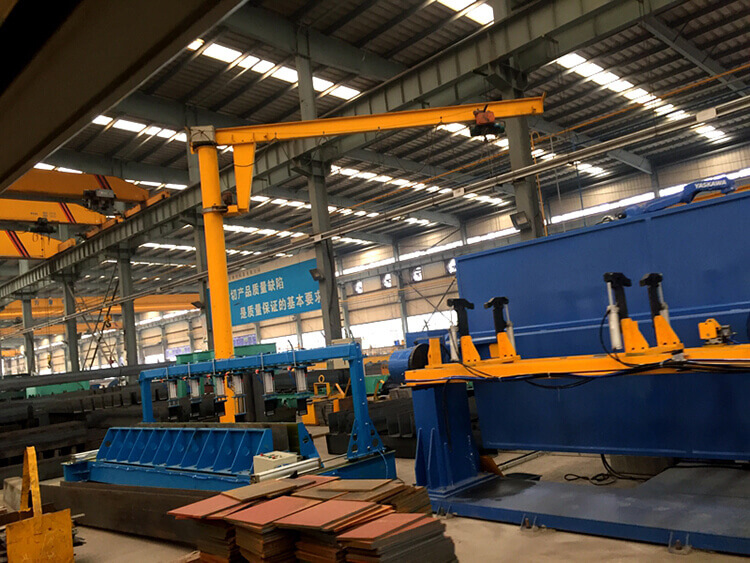A jib crane is a common and important piece of equipment in many industries that require lifting and moving heavy loads in a limited space. However, one of the most important considerations when installing or using a jib crane is whether a foundation is required for proper support and stability. Here are some factors to determine if a foundation is required for a jib crane:
1. Load capacity: The strength and stability of the foundation must match the load capacity of the jib crane. If the load capacity is high, it’s likely that a foundation will be required to support the weight and ensure safe operation.
2. Crane height: The height of the jib crane is also a factor in determining if a foundation is required. If the crane is taller, the foundation will need to be stronger to counteract the increased forces that are exerted on the structure.

3. Location and ground conditions: The location where the jib crane will be installed and the condition of the ground will determine if a foundation is required. If the ground is weak or soft, a foundation will be necessary to provide a stable base.
4. Type of jib crane: Different types of jib cranes require different types of foundations. Wall-mounted jib cranes may require a different type of foundation than freestanding jib cranes.
In conclusion, determining if a foundation is required for a jib crane depends on various factors such as load capacity, crane height, location, ground conditions, and type of jib crane. It is important to consult with qualified professionals to ensure that the jib crane is installed in a safe and secure manner. When done properly, a jib crane can significantly improve the efficiency and safety of material handling operations.







